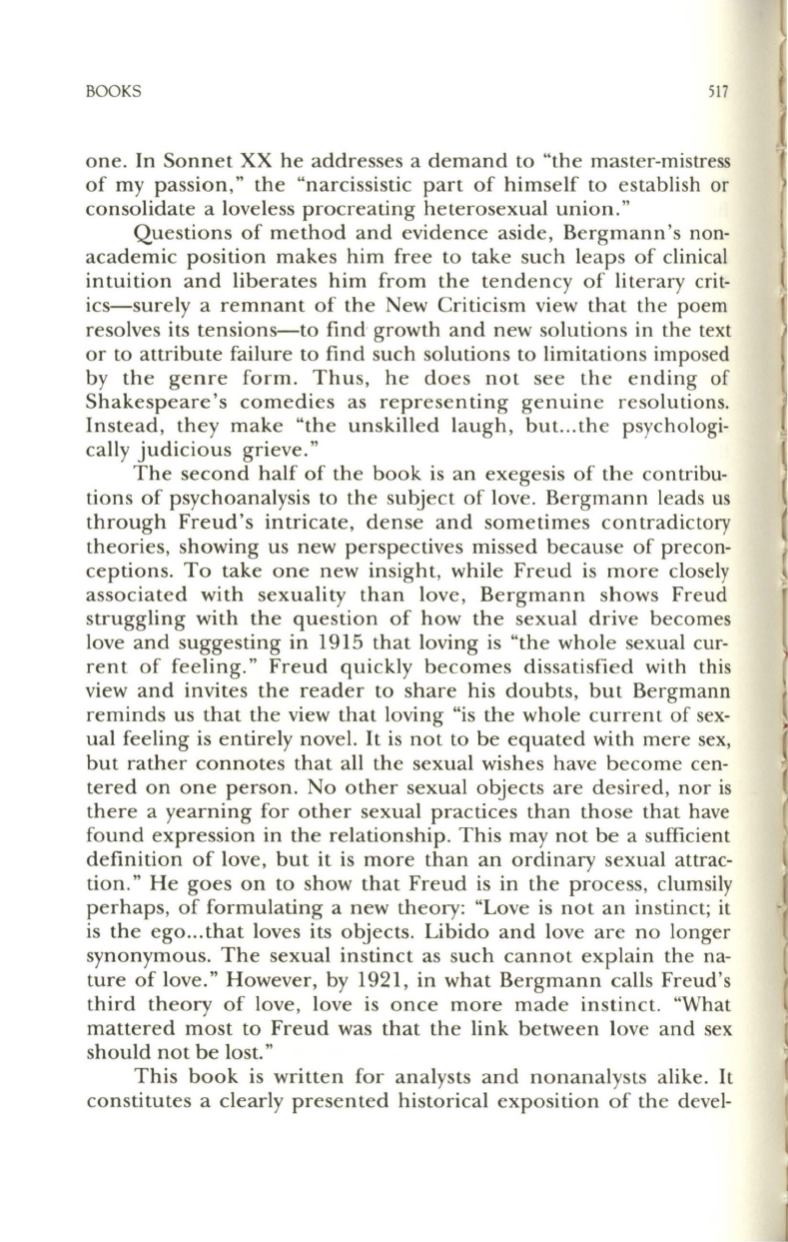
BOOKS
517
one. In Sonnet XX he addresses a demand to "the master-mistress
of my passion," the "narcissistic part of himself to establish or
consolidate a loveless procreating heterosexual union."
Questions of method and evidence aside, Bergmann's non–
academic position makes him free to take such leaps of clinical
intuition and liberates him from the tendency of literary crit–
ics-surely a remnant of the New Criticism view that the poem
resolves its tensions-to find growth and new solutions in the text
or to attribute failure to find such solutions to limitations imposed
by the genre form. Thus, he does not see the ending of
Shakespeare's comedies as representing genuine resolutions.
Instead, they make "the unskilled laugh, but. .. the psychologi–
cally judicious grieve."
The second half of the book is an exegesis of the contribu–
tions of psychoanalysis to the subject of love . Bergmann leads us
through Freud's intricate, dense and sometimes contradictory
theories, showing us new perspectives missed because of precon–
ceptions. To take one new insight, while Freud is more closely
associated with sexuality than love, Bergmann shows Freud
struggling with the question of how the sexual drive becomes
love and suggesting in 1915 that loving is "the whole sexual cur–
rent of feeling." Freud quickly becomes dissatisfied with this
view and invites the reader to share his doubts, but Bergmann
reminds us that the view that loving "is the whole current of sex–
ual feeling is entirely novel. It is not to be equated with mere sex,
but rather connotes that all the sexual wishes have become cen–
tered on one person. No other sexual objects are desired, nor is
there a yearning for other sexual practices than those that have
found expression in the relationship. This may not be a sufficient
definition of love, but it is more than an ordinary sexual attrac–
tion." He goes on to show that Freud is in the process, clumsily
perhaps, of formulating a new theory: "Love is not an instinct; it
is the ego ... that loves its objects. Libido and love are no longer
synonymous. The sexual instinct as such cannot explain the na–
ture of love." However, by 1921, in what Bergmann calls Freud's
third theory of love, love is once more made instinct. "What
mattered most to Freud was that the link between love and sex
should not be lost."
This book is written for analysts and nonanalysts alike. It
constitutes a clearly presented historical exposition of the devel-


